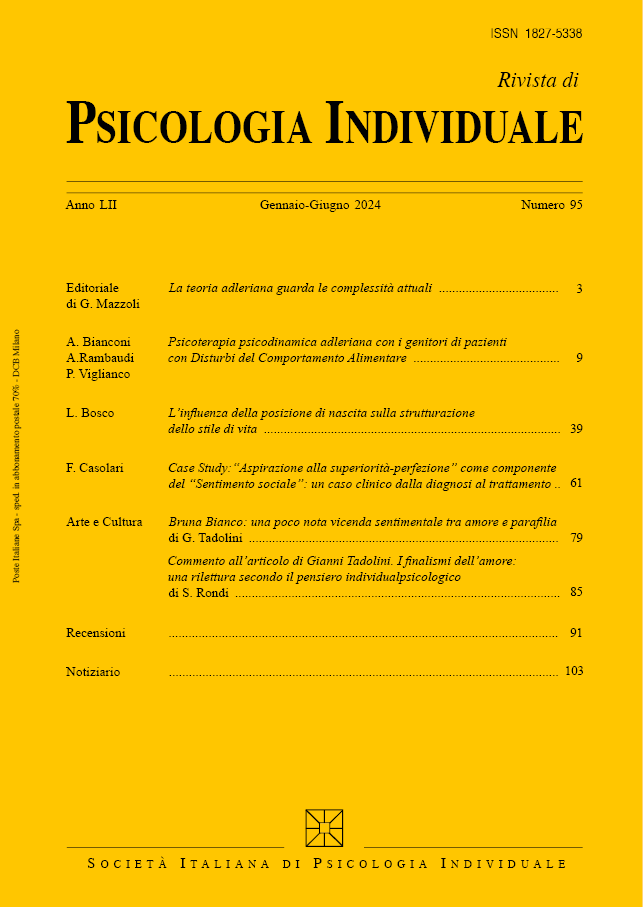Attitudes toward work
Keywords:
work, vital tasks, self-affirmation, relationship, training, lifestyle, compensation, community, adlerian psychologyAbstract
The contribution offers a nuanced reflection on the meaning of work in contemporary society, analysing it through the lens of the Adlerian model. In a context marked by rapid technological, relational, and productive changes, work assumes a central role not only economically, but also psychologically and socially. Unlike classical psychoanalysis, which often interprets work as sublimation or a duty imposed by the reality principle, Adler conceives it as one of the three vital tasks of the individual, alongside love and friendship. Work thus becomes a tool for self-affirmation, identity construction, and active participation in the community. From early childhood, individuals develop relational and affirmational strategies that shape how they engage with the world of work. Parents, as mediators of reality, influence the formation of lifestyle, determining whether work is experienced as a space of fulfilment or as a prison. In this framework, work can become a site of self-evaluation and emotional dependency, generating imbalances when social prestige outweighs relational needs. Today’s work environment is dominated by routine, fragmented information, and conflicts between task content and discretion. Role and skill negotiation occurs at the individual level, within a climate lacking stable groups, where individuals assert themselves with apprehension. This scenario mirrors, within the microcosm of work, the broader tensions of society. In this context, training emerges as a fundamental tool for growth. Group experiences, guided by expert trainers, foster relational learning and activate developmental needs often inhibited by the work environment. The group becomes both an operational model and a space for assessing trainees. The industrial psychologist, like the therapist, assumes a transformative role, promoting positive attitudes and preventing distress. Following Adler, the psychologist’s task goes beyond technical expertise, encompassing values and social commitment aimed at building a healthy and cooperative work reality






